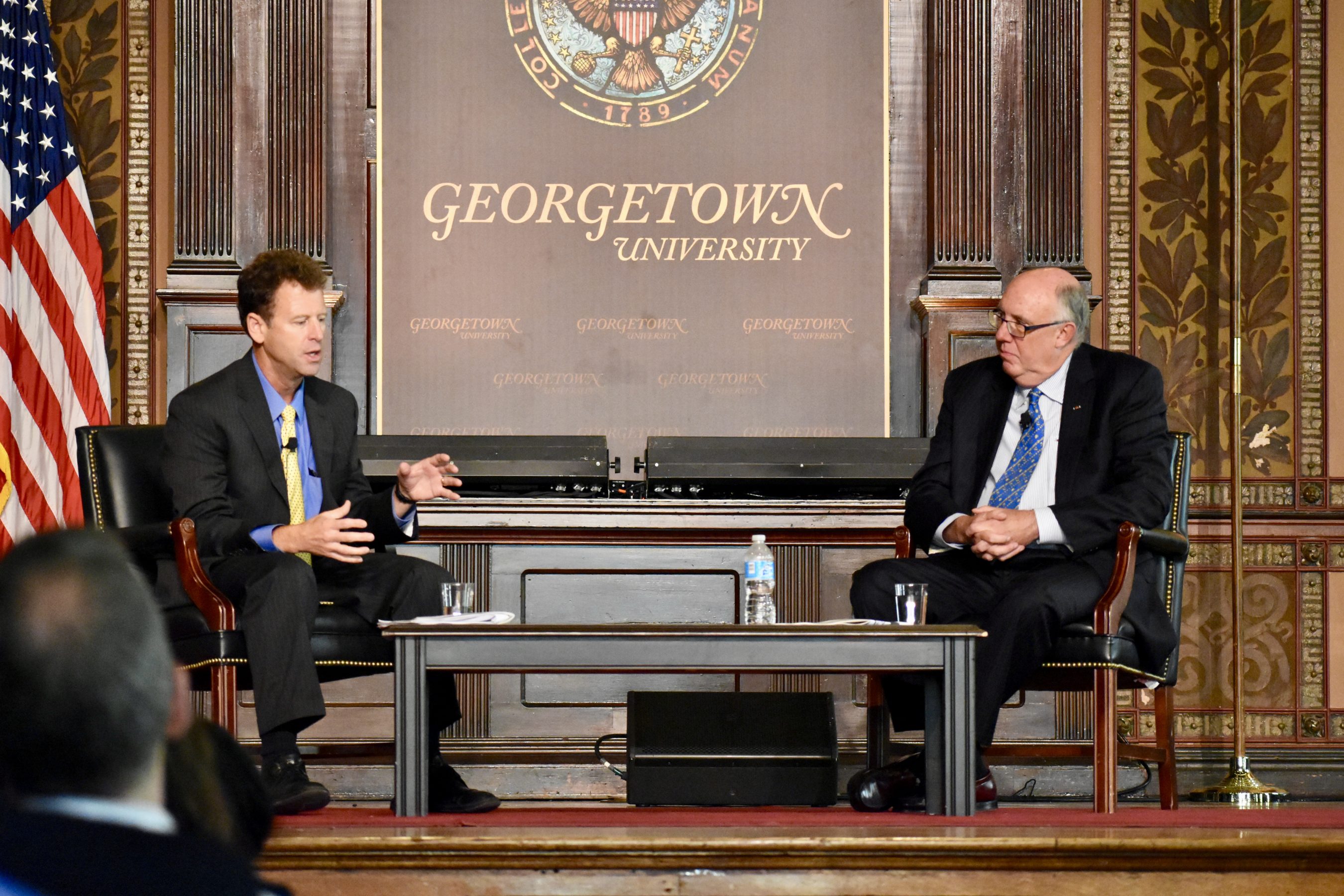The National Geospatial-Intelligence Agency (NGA), in collaboration with the Georgetown University Center for Security Studies, hosted the fourth George T. Kalaris Intelligence Conference in the Gaston Hall. The theme of the conference, held on Sept. 14, was “Global Intelligence Trends: Embracing Paradigm Shifts,” and covered the contemporary changes in areas such as terrorism, intelligence, and national security.
The conference included a number of keynote speeches and question and answer sessions. The audience consisted of both undergraduate and graduate students, as well as experienced professionals and scholars with backgrounds and expertise in national security and intelligence.
Robert Cardillo, the sixth and current director of the NGA, delivered the first keynote of the day. Cardillo spoke about his experiences as director, and how there has been a clear shift in both intelligence gathering and the nature of security issues. Cardillo also emphasized that public and private sectors must cooperate in order to keep up with advancing technologies. “Not competition, but partnerships with people pursuing the advanced sciences are how the NGA and private sector work best,” he said.
The second keynote speaker of the day was Bruce Riedel, a senior fellow and director at the Brookings Institute, and former advisor to Bill Clinton, Barack Obama, and British Prime Minister David Cameron. Riedel spoke about modern terrorism and how groups like ISIS were able to gain a following through certain societal conditions, such as a failing central government or escalating sectarian conflict between Shia and Sunni Muslims.
The following panels and speeches elaborated on the idea of public-private cooperation.
The first panel, “The Potential and Challenges of Big Data, ” covered the emergence of big data capabilities and the storage of large collections of intelligence.
Stacey Dixon, deputy director of the Intelligence Advanced Research Projects Activity pointed out that that these capabilities could prove to be a double-edged sword, due to the risk of data manipulation “As we begin to rely on data, and our adversaries realize this, it will be important to have protections in places,” he explained.
Anthony Vinci, associate director for capabilities at the NGA, furthered this point. “Our solutions for how we’re going to use this data has to accelerate – those are the challenges, and really opportunities,” he said.
The second panel, “Intelligence Sharing in a Multi-Polar World,” focused on the sharing of credible information. This panel discussed how terrorism has grown to become a global issue, and the necessity of cooperation and intelligence sharing. “We owe our decision makers and partners an understanding of all the data – across the spectrum”, said Dustin Gard-Weiss, associate director for enterprise at the NGA. “It’s not just about sharing the image anymore, it’s about sharing the insight.”
In the third and final panel, “Counterterrorism and the Challenges of Characterizing Post-9/11 Adversaries”, the panelists discussed the role that social media plays in ISIS recruitment and how this affects intelligence gathering, a topic that was irrelevant ten years ago.
The panelists continued to discuss the trend of terrorism becoming a global phenomenon. “We cannot afford to look at terrorism from just a United States perspective, we need to tackle it together,” said Major General Linda Urrutia-Varhall, a decorated Air Force officer who currently serves as the director of operations at the NGA.
All of the panelists agreed that there is a need for fresh minds in the fields of intelligence and counterterrorism. Maj. Gen. Urrutia-Varhall said, ”The out-of-the box thinking that these young folks bring is what we need – they challenge us. And it’s because they come in and they fix our VCR’s that they can do all of this.”
Image Credit: Amber Gillette





